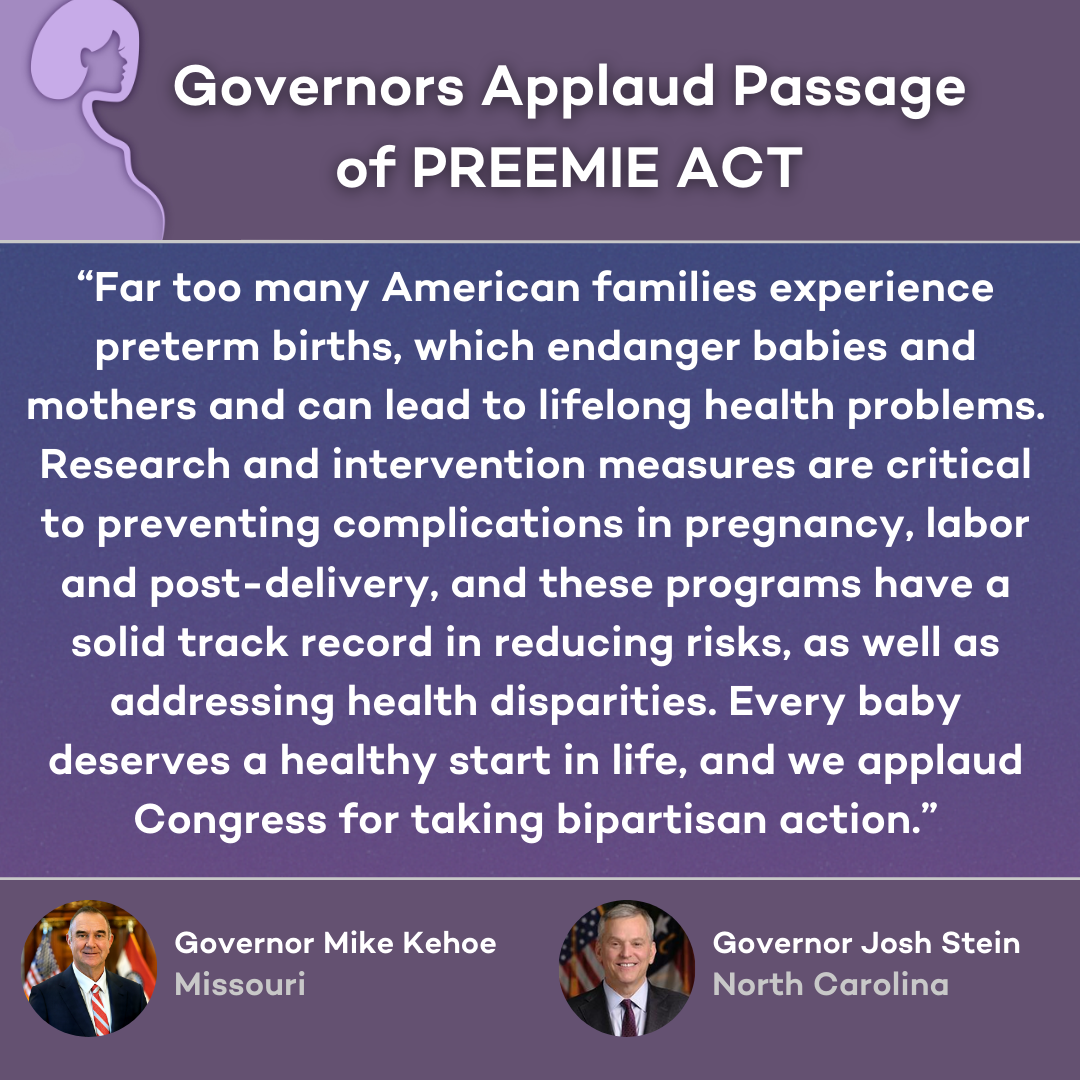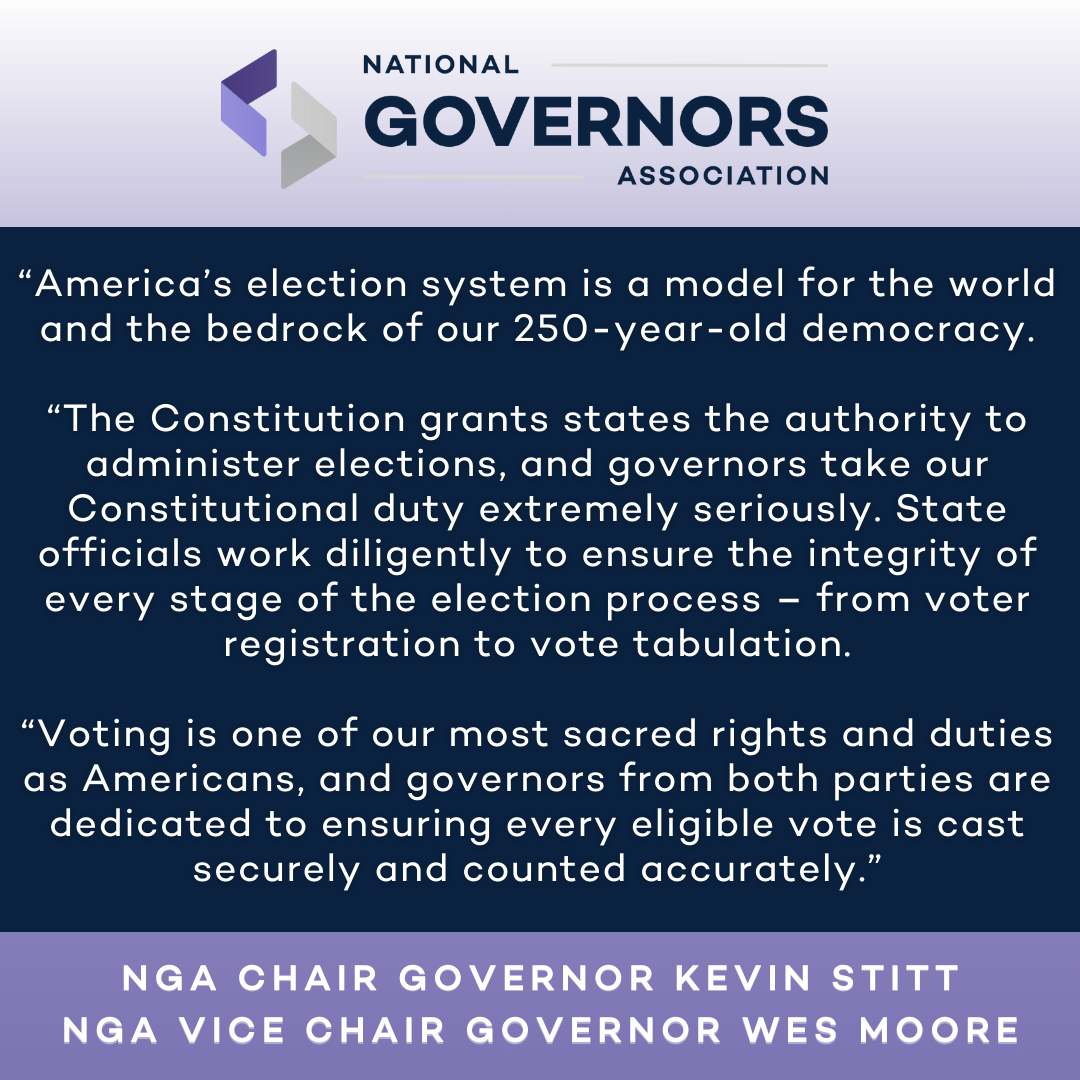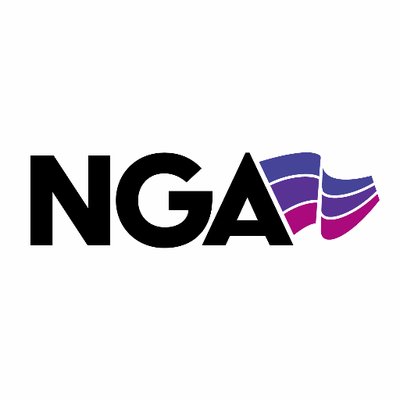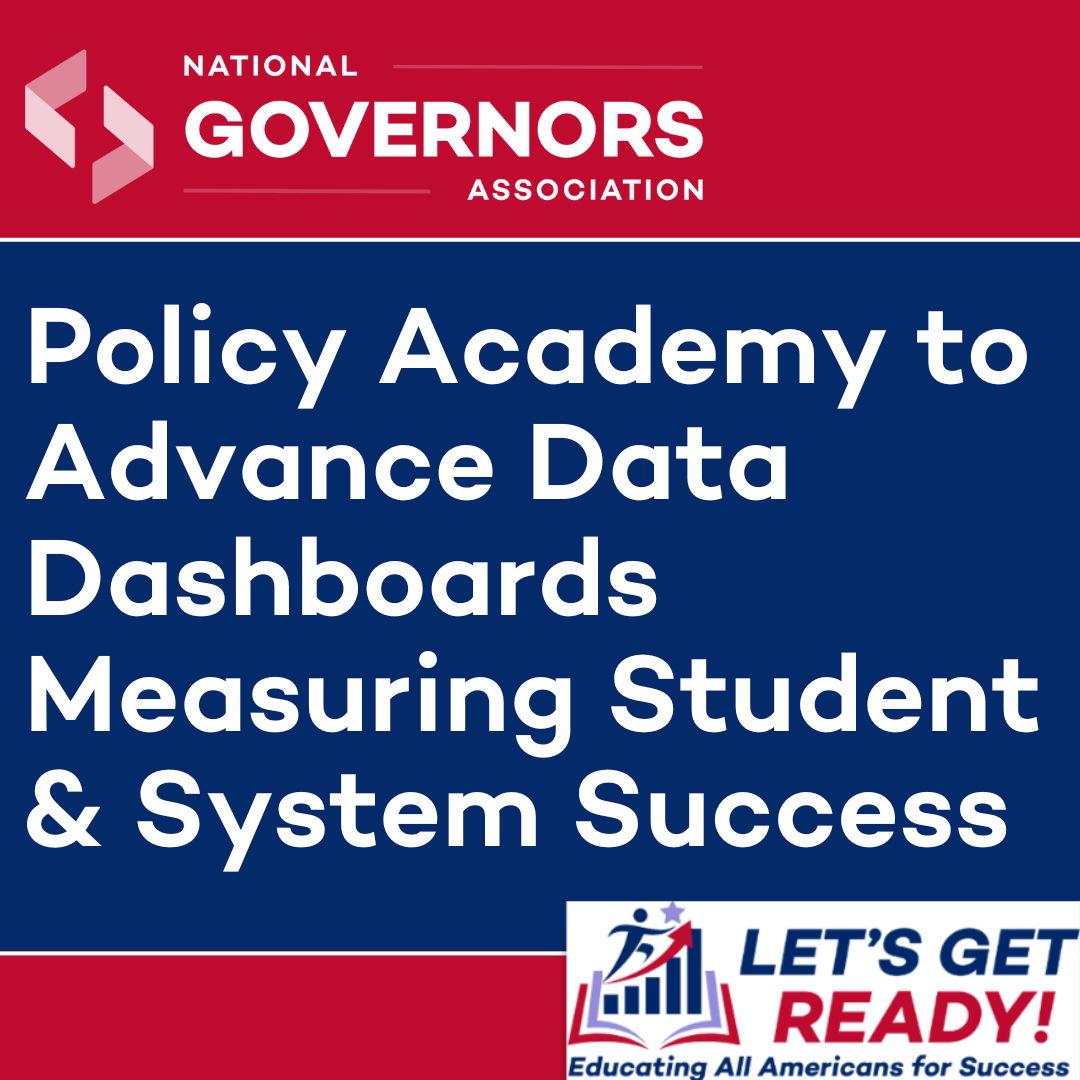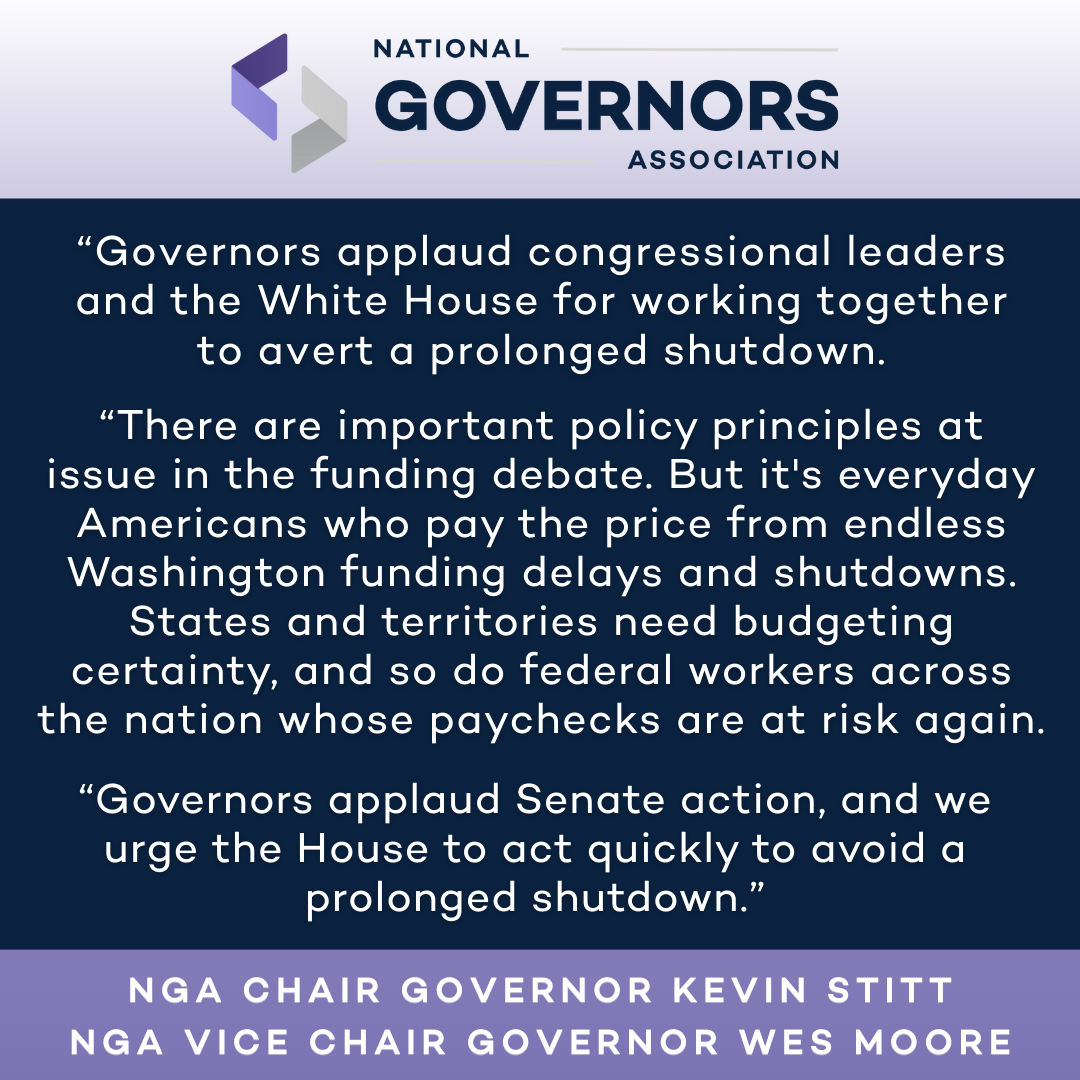On Tuesday, April 29, the National Governors Association hosted its monthly briefing for Governors’ legal counsel which discussed legal and regulatory considerations for states related to artificial intelligence (AI).
AI has the potential to inspire innovation and transform government. Concerns about potential misuse or unintended consequences of AI, however, have prompted state governments to research these tools and develop standards for responsible use.
Governors can play a major role in both regulating AI tools and encouraging the responsible use of AI in their states and territories. Some Governors have issued executive orders and other actions on AI, creating task forces, designating state AI leads, and outlining principles to govern its use. In addition to state AI leads and impacted agencies, Governors’ legal counsel may also become involved with AI on a broad range of issues, including ethical governance and use, privacy concerns, intellectual property, consumer protection, risk management, contracting and procurement, constitutional questions, and other legal and regulatory issues.
AI Executive Orders
Over the past two years, Governors in at least fourteen states (Alabama, California, Maine, Maryland, Massachusetts, Mississippi, New Jersey, Oklahoma, Oregon, Pennsylvania, Rhode Island, Virginia, Washington, Wisconsin) have issued executive orders pertaining to AI, particularly GenAI. These orders generally outline AI initiatives, establish state AI task forces, and/or encourage collaboration across state agencies and other partners. AI orders typically focus on ensuring the responsible use of AI in state government operations, as well as other initiatives such as workforce development, economic growth, improving education systems, and evaluating potential impacts of the use of AI by state agencies. Orders may instruct task forces to inventory the current uses of AI in state government, develop trainings for state employees, issue AI guidance to state agencies, or require a report be submitted to the Governor with recommendations on responsible ways to integrate AI as a tool to improve government operations.
Governors and state agencies have taken several other actions related to both the governance and use of AI. Several Governors also have appointed Chief AI Officers, directors, or advisors to guide their AI strategy and deployment. This role is multifaceted, encompassing strategic leadership in AI, establishing governance structures, fostering collaboration, and ensuring responsible AI deployment.
States are working to understand current uses, setting a common understanding around allowable uses, putting guardrails around future uses, and encouraging the innovative development and use of AI tools to transform government services. In addition to developing frameworks and general AI strategies, Governors and state leaders have established AI Centers of Excellence, AI Hubs, or other entities focused on research and development, innovation, collaboration, and strengthening AI operations in the state. These entities may also assist state agencies in evaluating use cases and providing recommendations to mitigate risk, foster governance communications across agencies, and enhance public-private partnerships.
State Legislative Trends
State legislatures across the U.S. are increasingly addressing the rapid evolution of AI through a diverse array of bills and regulations. In recent years, hundreds of bills have been introduced in nearly all state legislatures relating to AI. These bills address regulating the design, development, and use of artificial intelligence, focusing on key issue areas such as data privacy, transparency, reliability and effectiveness, and fairness and equity. Key legislative themes and trends that have emerged at the state-level include:
- Understanding State Government AI Use and Oversight
- Ensuring Private-Sector Governance and Consumer Protection
- Establishing AI Task Forces and Ensuring Interdisciplinary Collaboration
- Safeguarding Data Privacy
- Protecting from Algorithmic Discrimination and Implementing Risk-Based Frameworks
- Prohibiting the Use of Election and Non-Consensual Explicit Deepfakes
- Placing Restrictions on the Use of Companion Chatbots
- Regulating the Use of Algorithms to Set Prices
- Ensuring Compliance and Accountability Measures for AI Deployers and Developers
Risk Management Considerations
State governments uniquely approach the use of AI technologies as both users and as regulators. States are already using AI tools in regular operations, and are considering ways for their potential use in the future. Examples of AI use by state governments may be found within the following sectors:
- Public safety and criminal justice systems (e.g., security and surveillance, facial recognition, predictive policing, risk assessment in bail and sentencing);
- Consumer fraud and protection (e.g., fraud, cybersecurity, extortion, sexual content)
- Education (e.g., monitoring student activity, personalizing learning);
- Commercial data practices (e.g., employment, housing); and/or
- Benefits systems and public health (e.g., eligibility determinations, fraud detection, licensing).
AI might also be utilized in certain agency operations to streamline procedures (e.g., in hiring) or improve government efficiency (e.g., the use of chatbots, data dashboards, connecting with government services). However, because AI technology is so new and rapidly changing, states must balance the urge for innovation with responsible use, and take time to understand potential negative or dangerous impacts.
Potential uses and issues involving AI will, by nature, continue to evolve. Legal experts note that state and federal regulators will need to approach their work with agility, flexibility, and vigilance. As such, with the use of existing AI tools and the release of GenAI, governmental bodies are exploring the benefits and challenges associated with the use of this technology—both in terms of using AI to improve government operations and regulating AI to ensure such tools are used responsibly by others.
NGA holds monthly briefings for Governors’ legal counsel. Please reach out to Lauren Dedon (Ldedon@nga.org) for additional information.



